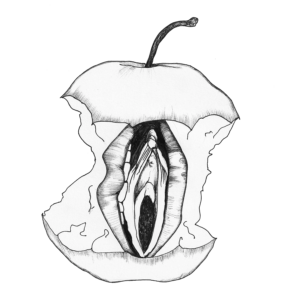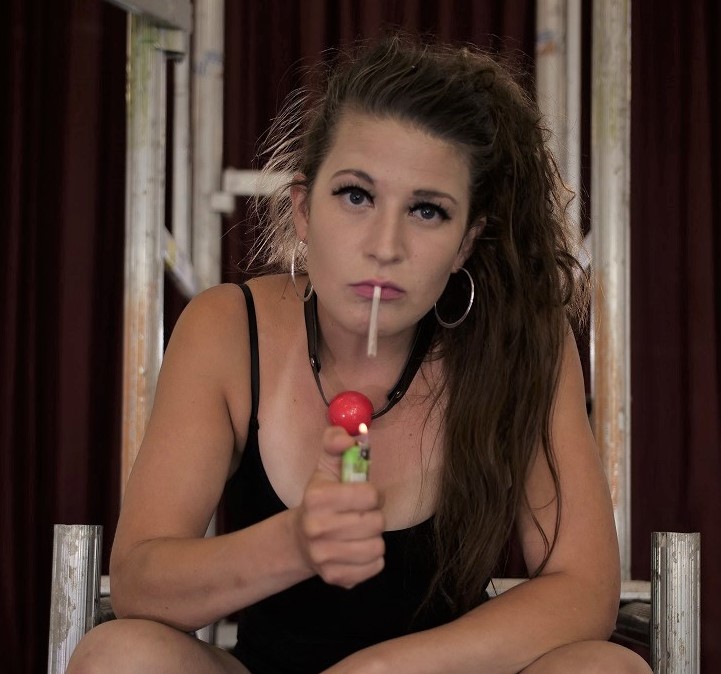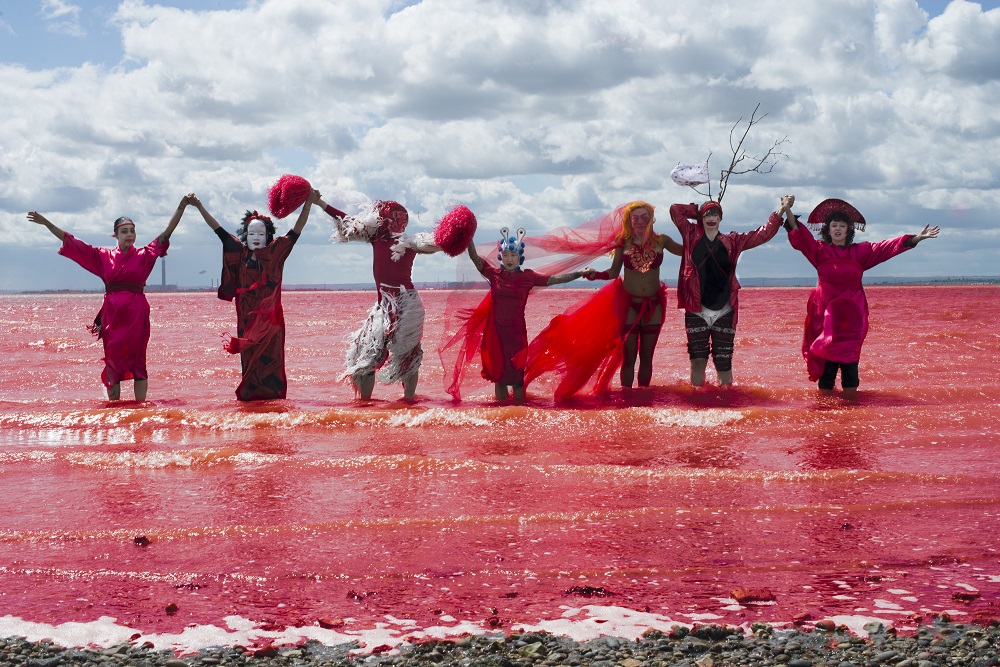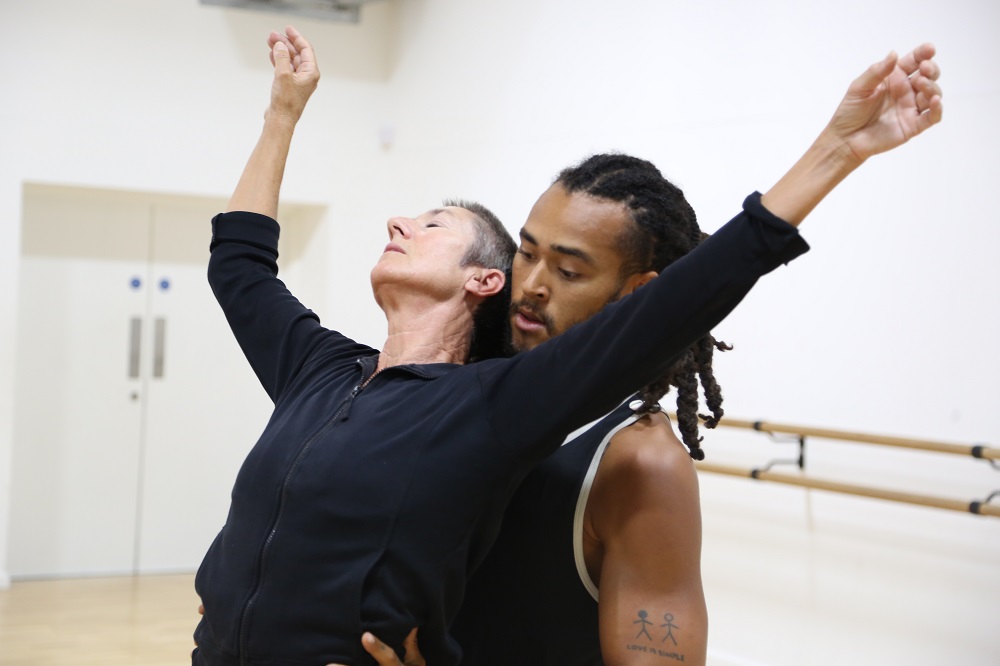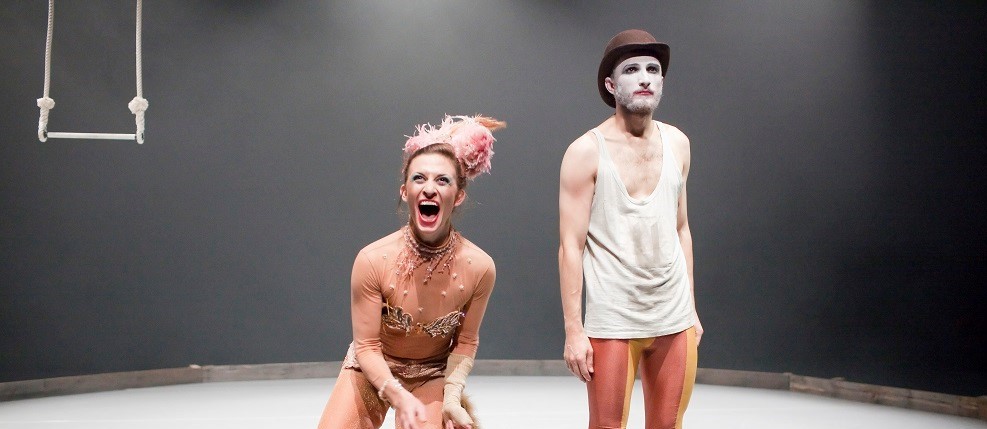Can you tell us about your work in a way that resists the description in your show copy?
I would say that I make work which is inspired by questions that I come across in real life. For me, art is a landscape to research and explore ideas, in the same way that writing, academia or science or life experiences are. Art feels necessary because it has space for ambiguity in a way that maybe those other things don’t. I feel like my work is one part of a constant process, led by curiosity and a kind of rigorous consistency. In that process, little pieces of writing happen and shows happen and photographs happen, but they are really a byproduct of this overall process.
Everything I see I Swallow, which I co-wrote with Tamsin Shasha, was a chance to really sit down with ideas that I’ve been thinking about for about four or five years, through writing and photography and also just in life. It’s quite autobiographical. I have worked in strip clubs and done a lot of underground, slightly sexy shows in London, and worked as a Shibari model in real life, and on some art porn as well… it all felt like research, and so did the show.
What performance communities do you work with or feel part of and why?
The National Centre for Circus Arts sort of feels like my home because I studied there and I teach there now, but actually, I would say creatively I’m a bit of a loner – I’m very precious with my work and I don’t share things very much with people.
The sense of creative community I have would probably be more with my friends who are theatre makers, fine artists and musicians and stuff, because I feel like it’s easier to really be creatively vulnerable with those people. There’s an expectation to keep up a brave face [in circus], but I think all artists are terrified all the time. I guess I think of myself as a writer, rather than a circus person, because actually I don’t really train! I was never particularly interested in getting hard tricks, even when I was doing my degree. It was always about like, ‘…okay, but what can this mean?’ I feel more fluent with performing with circus, with bodies, than I do with any other art form, but it’s not because I think it’s better, it’s just the language that I’ve grown up with.
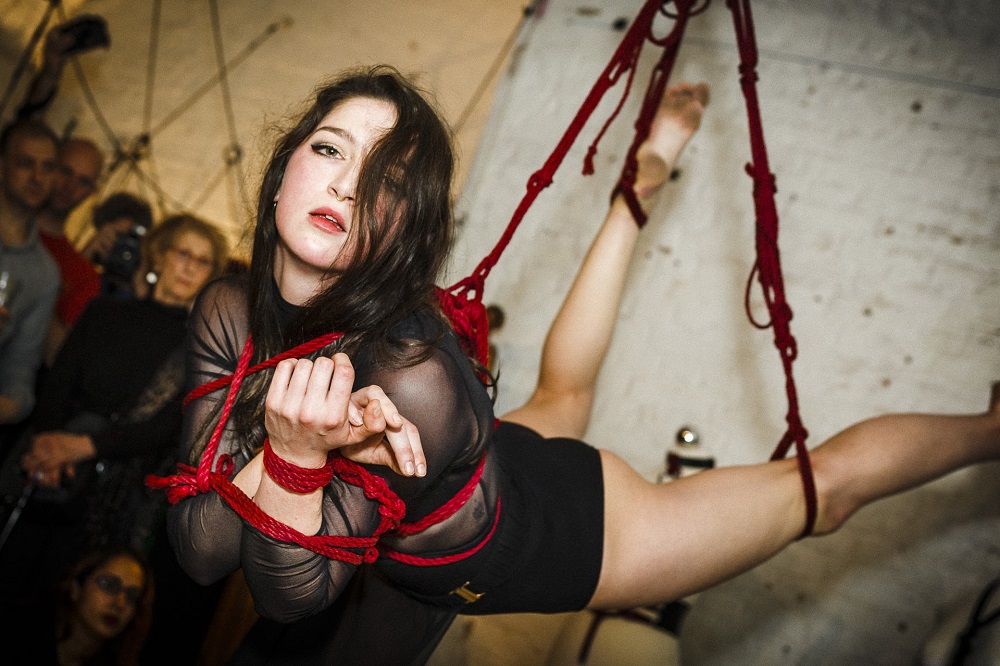
Can you give us an insight into your curating and devising process?
I am extremely logical… It’s a very linear thing where I’m asking a question, whether that’s just, what type of movement tells the story best, or can sexual expression be empowering? and in the moment whatever I’m doing I’m trying to find the answer. I struggle creatively with too much freedom. I have to minimise the surface area of possibility and then during the process, stay aware of whether I’m still serving the question or not. That way it can’t ever feel like you’re just going through the motions, you are focused and aware, all the time.
Can you tell us a bit about your experience of working with Circus and your journey and learning. What was your first experience?
Well, my parents are circus artists, they were travellers, and started training at Green top in Sheffield when I was about three. They put me in a little cage in the corner of the room. When I was about five they moved to Brighton and set up the Circus Project. My first time performing was about that age, they had this very 90’s double trapeze act, I think my dad even had one of those light up staffs and they had these awful costumes – I mean it was cool then!…and I was dressed up as a monkey in this giant hairy costume handing out banana sweets to the audience.
I don’t even remember learning how to climb a rope. I wasn’t training super hard, my parents never pushed me. It was like a gradual kind of learning… and then, I think it was at the first ever National Youth Circus event at Circus Space [now the National Centre for Circus Arts], I saw the facilities and really loved it, so I started training a bit more seriously. I was quite academic at school and I was not 100% sure if I wanted to pursue that or go into circus, but I auditioned when I was 17, did the degree and finished just before I turned 20. And that was five years ago now.
Do you feel any pressures working in circus?
Yeah, I actually think that being involved in circus for so long has made that worse for me. I mean, I’m very self critical and anxious, as a person, and I think I have this expectation of myself… People know that I was a circus baby, which is a privilege not many people have, and then also that I got on to the degree and finished it so young, and so I should be really good – And I’m not, because I don’t really train that hard. So I definitely feel a lot of pressure, probably imagined pressure. I don’t really like going into spaces to train… but then the London circus scene is quite hostile, I don’t know, really exactly why, but even people who are really good at what they do, can feel quite intimidated.
Outside of performance, what influences the work that you make?
Obviously a lot of my work is about sexuality and, sort of, where that fits in society. I’m interested in the body in performance and when that even stops, because I think that sexuality is not something removed, like the female body as a sexual object is not something that kind of begins and ends at any point, and if that is something that we learn, then it is a performance. I get a lot of my direct inspiration from my real life experiences, and also from going into the world, trying to get those experiences and sort of pushing myself. Although [sexuality] is a very intellectually driven topic for me, I feel like the questions I have need to be explored physically.
Just before Swallow I acted in an art porn film commissioned by Erica Lust, with guest directors Ellen Pearson and Kitty Drake, and I recently got a few more jobs doing things like that, to push my boundaries a little bit further and try to sort of, work it out. I’ve always done shows where I take off my clothes, art nude modelling and work like that, but that just doesn’t happen to cross my boundaries. I genuinely don’t feel uncomfortable about it. But having a camera in between my legs, or having sex on camera, that does feel scary. This is an example of research needing to be embodied: although I think it is a morally sound thing to do before I’ve tried it, it doesn’t necessarily mean I’ll find it empowering, because it might just feel threatening or upsetting to me.
How do your personal politics influence the work that you do?
Well, I guess really heavily. I mean, obviously all of my work is about this one specific subject, which is political. But then I also don’t think I have any answers. In Swallow the mother and daughters opinions are: ‘sexual expression is empowering’ and ‘sexual expression is oppressive’. I don’t actually think either one of those two things, I don’t want to convince people one way or the other, but I want to have that conversation. The only thing I’m sure about is that when no one understands, when everybody’s a bit confused, we need to have conversations that go into more depth, that allow for more ambiguity and texture.
One thing I feel quite strongly about is that there’s too much pressure on women to choose what sort of brand of feminism to align themselves with. I’ve been thinking about this for so long, and I still don’t know, so I imagine the experience of young girls trying to [navigate this].
It appears that if you can justify your behaviour that makes it a lot better- so if there are girls posting naked photos on Instagram saying ‘this is a political act and I’m empowered by it’ then it’s seen as very different from the same actions without that explanation. But A, I feel like, how can we be sure, because it’s so blurry, I mean, what does it even look like to be empowered when we’re growing up with a patriarchy influencing everything? And B, the idea that these actions have to be justified is elitist because some people might not have access to the information or capacity to think about it from that perspective, but that doesn’t mean that they shouldn’t have the right to choose what they’re doing.
It feels like it’s not allowed to be complicated, like you have to be ready to explain and label yourself. So I think what people end up doing is just choosing a type of feminism that already aligns with their actions, and not necessarily actually asking, how does this feel in my body?
Are there audiences that you are not currently reaching that you wish you were?
I think it would be nice to have men come and see it. Firstly because, if they were interested, that would be a really nice sign, and secondly, because I feel like one of the beautiful things about art is that, [unlike autobiography and nonfiction] when everyone wants to contest it and say, ‘Oh no, that didn’t happen to you’, if you write a piece of art, people actively want to see the reality of it. And that’s this thing that they walk in with. Whenever I try to talk to men of my own age about these really subtle issues they tend to be like – and this a massive sweeping statement obviously like I know this is not the case with everyone – but they tend to be a little bit dismissive and sort of reluctant to see those nuances. I guess I think that art might help that along.
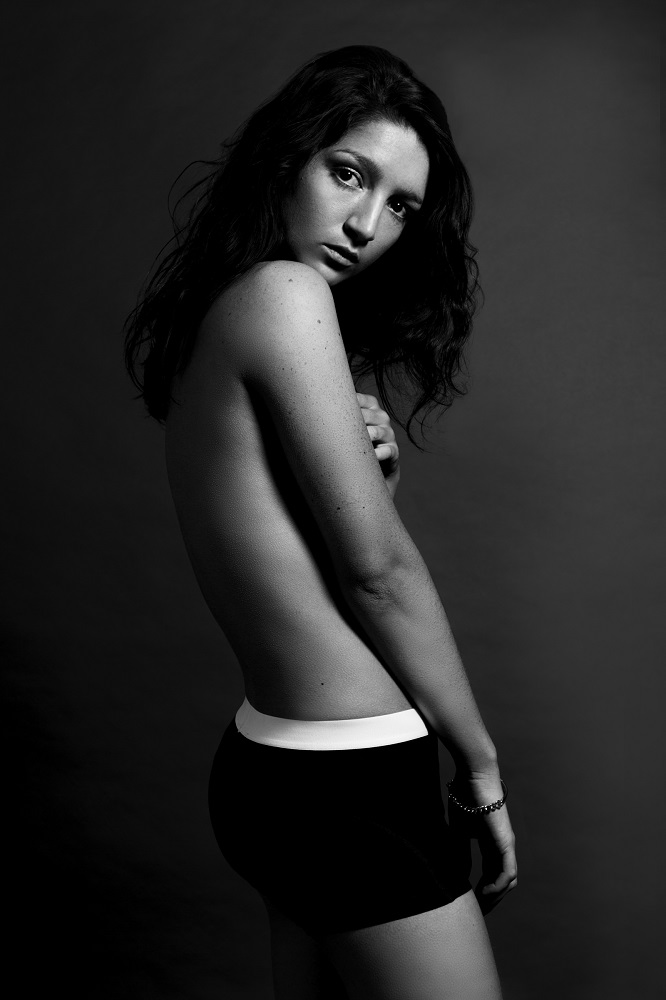
Can you tell us about someone who has been influential in your journey as an artist?
I think it might have to be my real mum. It’s a very practical answer, but I mean I grew up watching her making shows, running a circus school, writing funding applications. And I think of making art as a viable way to live your life and that’s probably partly because of her. And also, she’s very encouraging. She doesn’t disapprove of anything, like the mother in the show – that’s the one thing that is not autobiographical.
Tell us a bit more about the project you are currently working on….
During the quarantine, I have been living on my own, so I’ve had a lot of time to think. I’m starting to realise that my creative process takes a really really long time and I need to accept that I don’t necessarily have to be actively making something right now, but I might be in the process of kind of resting, or maybe in the process of gathering information from around me and it’s not until I start making something [that I realise] I’ve got all this wealth of stuff that I want to talk about. But because I had so much free time I had started to feel quite guilty about not making things. So partly based on my experiences of learning to communicate better in polyamorous relationships, I decided to think about my relationship with creativity. I care a lot more about that than I do about actually creating work.
I realised that expecting to be able to just make things when you’re constantly putting pressure on yourself to do that, is like, expecting your partner to want to have sex with you when you’re in the middle of a fight. In relationships if you set aside time to have conversations, when there’s no distractions, you’re more likely to be constructive and non violent in your communication. So I made a video that was a letter to Creativity and I’m starting to have meetings with it, and thinking about my relationship with it, in the hope that it will potentially develop and become easier to make things, but not to put pressure on it to do that.
